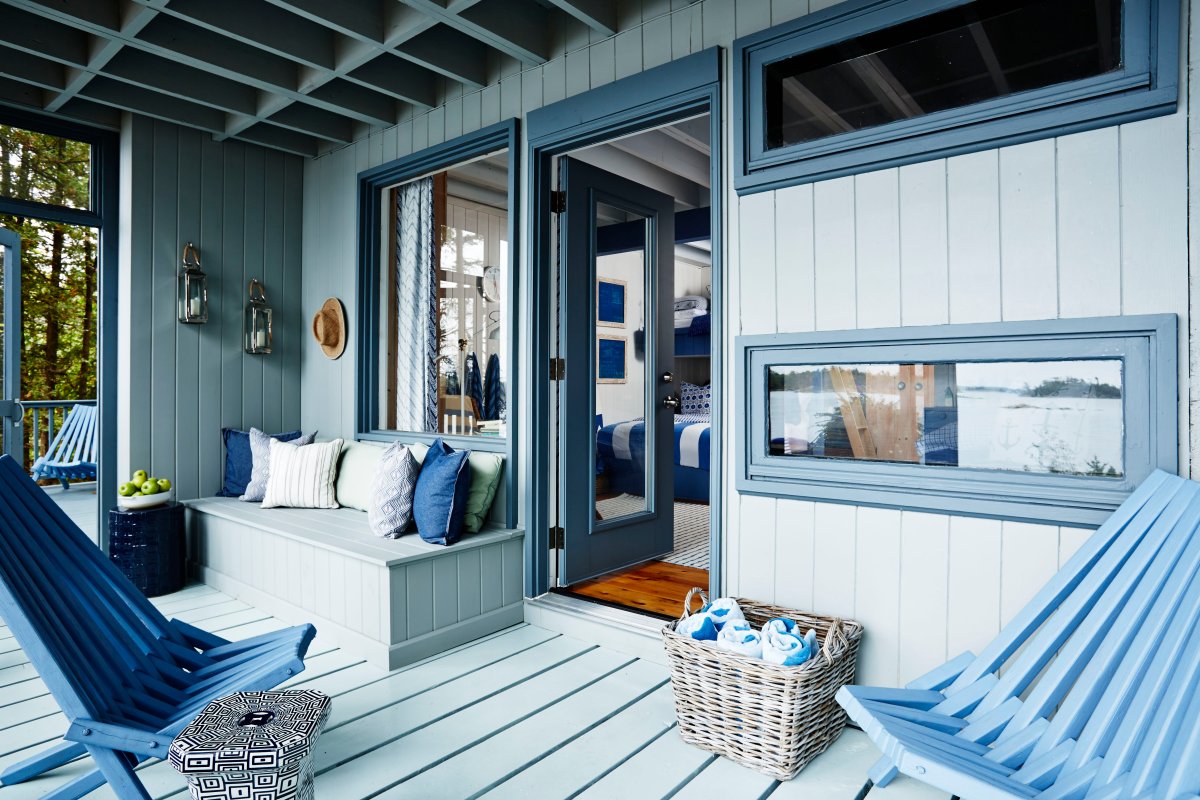WATCH ABOVE: Sarah Richardson talks cottages and vacation rental properties ahead of the premiere of her new HGTV show.

TORONTO — Wouldn’t it be nice to own a lovely cottage and get help paying the mortgage? That’s the project home expert Sarah Richardson decided to tackle and document in her new show Sarah’s Rental Cottage, which premieres on HGTV Thursday night.
Committing to the 1950s-era family cottage, located on a remote island, was the easy part for Richardson. A little trickier was the big six-week reno that followed — especially since every dollar counts when it comes to an investment property’s bottom line.
Richard’s advice to anyone taking on a project like this: don’t underestimate the power of paint.
“I’ve always been a firm believer that opening a gallon of paint and dipping in a paint brush yields terrific results for a very inexpensive price-point, especially if you can do it yourself.”
WATCH: More from Richardson and her design partner Tommy Smythe on how to turn an outdated cottage into a perfect rental
She also recommends being practical and choosing upholstery and fabric coverings that can be easily washed and will stand the test of time.
“This is a cottage, it’s not fancy, it doesn’t have to be sleek and contemporary. It needs to be comfortable.”
What to look for when shopping for a cottage
Like buying any piece of real estate, the key thing to keep in mind is location.
“You can change everything but location,” Richardson said. “So keep that in mind when looking for that investment property. You want to invest your dollars in a place people want to come.”
“The more popular the location is and the easier the access, the more rent it’s going to command,” added B.C. realtor Sarah Daniels.
It’s important to also check the septic system, as well as make sure you have decent water access and that the water is drinkable. If it’s not, you’ll likely have to install a proper filtration system.
READ MORE: Four safety tips for your cottage vacations
“When you’re renting you have to remember most people don’t care about that kind of stuff so you really have to be sort of ‘on it’ for the maintenance of the home,” Daniels said.
If you plan on using the cottage as a rental property, she suggested asking the seller if it’s been used for that purpose before. If it has, get records of how often it was rented out and for how much.
WATCH: Michelle Kelly of Cottage Life Magazine talks about the top things you need to look at when renting a cottage.
Financing a cottage
“To get a mortgage on a cottage is more challenging,” admitted Jeanette Brox, a senior financial consultant with Investors Group.
“Financial lending institutions will charge a higher rate and will ask if the cottage is winterized and how often it will be used. From a lending point-of-view, it is viewed as more of a risk. Generally if a client owns a home mortgage free, it would be easier and cheaper to arrange a secured line of credit and use the line of credit to buy the cottage.”
Maureen Reid is a branch manager at Meridian Credit Union in Penetanguishene, located in the heart of Ontario’s cottage country. She explained that the financing will also depend on how accessible the cottage is.
For “Type A” cottages, which are accessible by car during all four seasons and have heat and running water, you can get a mortgage for 80 per cent of the value, which means you’ll need a 20 per cent down payment.
“Type B” cottages, which may not be winterized and have only seasonal access, are financed differently. They are considered a more risky investment and would require a 35 per cent down payment. The financing would be treated as a loan, rather than a mortgage. The rates would also be higher on this type of property, since it’s harder to get to, as would appraisals.
Is it worth it?
Brox said that generally, over the long run, cottages can be solid investments.
Of course, you have to be willing to handle the upkeep involved with owning a cottage, and hope that you can consistently find high-quality renters if you’ll be relying on that income.
An important question to ask, according to Brox: “How many months can you carry the property before it is a drain on your monthly cash flow?”











Comments